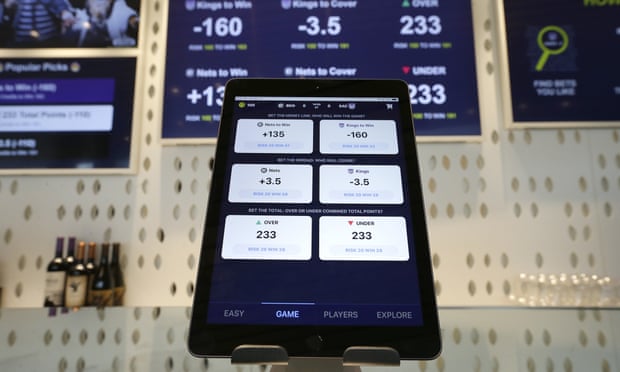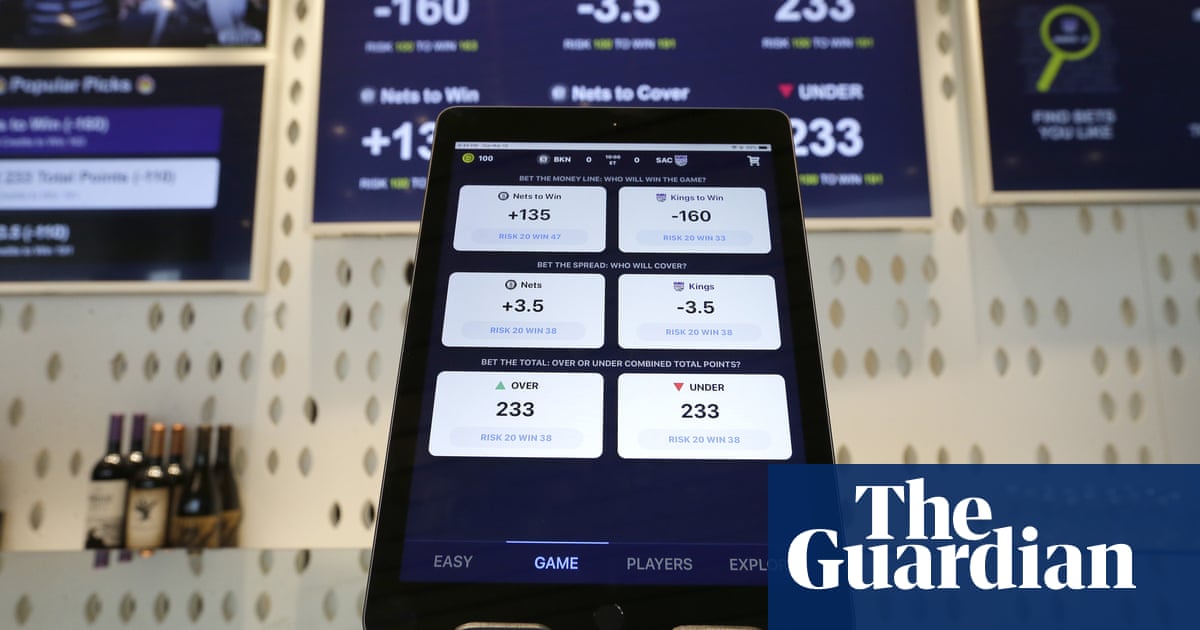Is California’s gambling war the priciest campaign in US history? You bet
Efforts to legalize sports betting have sparked a $400m battle – and left voters scratching their heads

The campaign that could bring legalized sports betting to California is the most expensive ballot-initiative fight in US history, costing $400m and counting, and pitting wealthy Indigenous tribes against online gambling companies over a potentially multibillion-dollar marketplace.
Californians have been bombarded with advertising for months, much of it making promises far beyond a plump payoff from a game wager. Some ads coming from the consortium of gambling companies barely mention online betting.
Instead, the ads tease a cornucopia of benefits from new revenues – helping unhoused people, aiding people with mental illness and providing financial security for poorer nations that haven’t seen a windfall from casino gambling. Further clouding the issue: there are two sports betting questions on the ballot.
The skeptics include the state’s Democratic governor, Gavin Newsom, who hasn’t taken a position on either proposal but has said Proposition 27 “is not a homeless initiative” despite the claims in advertising.
Jack Pitney, a political scientist at Claremont McKenna College, said “something for nothing” promises had been used in the past to sell state lotteries as a boundless source for education funding. It was political salesmanship, “not a cure-all”, he said.
With the stakes high, over $400m has been raised so far – easily a national record for a ballot initiative fight, and nearly doubling the previous mark in California set in 2020 – with another seven weeks to go until balloting ends on 8 November.
“They are spending hundreds of millions because billions are on the line,” said the longtime Democratic consultant Steven Maviglio, referring to potential future profits from expanded gambling in the state of nearly 40 million people.
“Both sides stand to really get rich for the long term,” said Maviglio, who is not involved in the campaign. It could become “a permanent funding source for a handful of companies – or a handful of tribes”.
All of it could be a bad bet.
With the midterm elections approaching, voters are in a foul mood and cynical about political sales pitches. And with two similar proposals on the ballot, history suggests that voters are inclined to be confused and grab the “no” lever on both.
“When in doubt, people vote no,” Pitney said.
Competing measure paint a muddled picture
In California, gambling now is permitted on horse races, at casinos run by Indigenous nations, in cardrooms and through the state lottery. But the state has been something of a laggard in sports betting, which has been spreading across the country.
The two proposals would open the way for sports betting, but in strikingly different ways.

Proposition 27 is backed by DraftKings, BetMGM, FanDuel – the latter is the official odds provider for the Associated Press – and other national sports betting operators. The proposal would change state law to allow online sports betting for adults over the internet and on phones or other mobile devices.
Multi-state operators would be required to partner with a nation involved in gambling, or licensed nations could enter on their own. However, the nations argue they would have to surrender some of their independence to enter the deal. A tax would cover regulatory costs, with the bulk of the remainder earmarked for homelessness programs, and a slice going to nations not involved in online betting.
A rival proposal backed by many nations, Proposition 26, would let people wager on sporting events in person at retail locations – casinos operated by tribes and the state’s four licensed horse racing tracks. A portion of a 10% tax would help pay for enforcement of gambling laws and programs to help people who have a gambling addiction. It also could open the way for roulette and dice games at tribal casinos.
A handful of political committees are in the center of the fight, raising funds and dueling for public support.
The Yes on 26, No on 27 committee, sponsored by more than two dozen Indigenous nations, has raised about $108m through this month, state records show. Among the major donors: Federated Indians of Graton Rancheria ($30m), the Pechanga Band of Indians ($25m) and the Yocha Dehe Wintun Nation ($20m). All have been enriched by their own casinos.
Another committee seeking to defeat Proposition 27 is backed by nations including the San Manuel Band of Mission Indians and has pulled in about $91m.
Their main rival, the Yes on 27 committee backed by sports betting companies, has generated about $169m in loans and donations.
A committee opposing Proposition 26, backed by card clubs, has piled up over $41million for the fight. The proposition includes changes in enforcement that the clubs see as an attempt to give tribes a virtual monopoly on all gaming in the state.
Despite the lofty claims about new income for the state, it’s not clear what the fiscal benefits might be with either proposal.
A muddle of political endorsements are in the mix, and voters are witnessing a deluge of competing claims.
The No on 26 committee says wealthy tribes are looking to game the system to gain unprecedented gambling income and political influence.
Rob Stutzman, a spokesman for the No on 27 committee, warned that up to 90% of the profits from the proposal could go to the gambling companies and “you know a measure is bad news when both the Democratic and Republican parties oppose it.”
